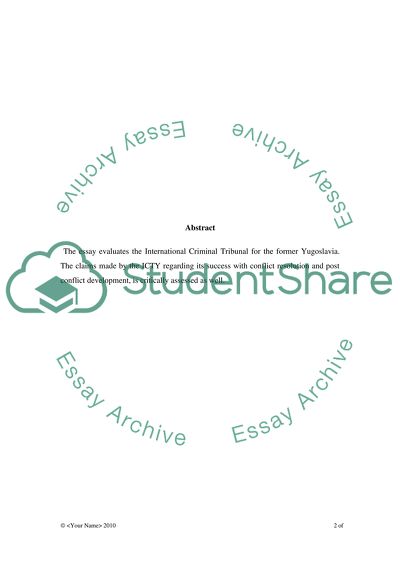Cite this document
(“Evaluation the International Criminal Tribunal for the Former Research Paper”, n.d.)
Evaluation the International Criminal Tribunal for the Former Research Paper. Retrieved from https://studentshare.org/law/1562758-critical-introductino-to-law-essay
Evaluation the International Criminal Tribunal for the Former Research Paper. Retrieved from https://studentshare.org/law/1562758-critical-introductino-to-law-essay
(Evaluation the International Criminal Tribunal for the Former Research Paper)
Evaluation the International Criminal Tribunal for the Former Research Paper. https://studentshare.org/law/1562758-critical-introductino-to-law-essay.
Evaluation the International Criminal Tribunal for the Former Research Paper. https://studentshare.org/law/1562758-critical-introductino-to-law-essay.
“Evaluation the International Criminal Tribunal for the Former Research Paper”, n.d. https://studentshare.org/law/1562758-critical-introductino-to-law-essay.


